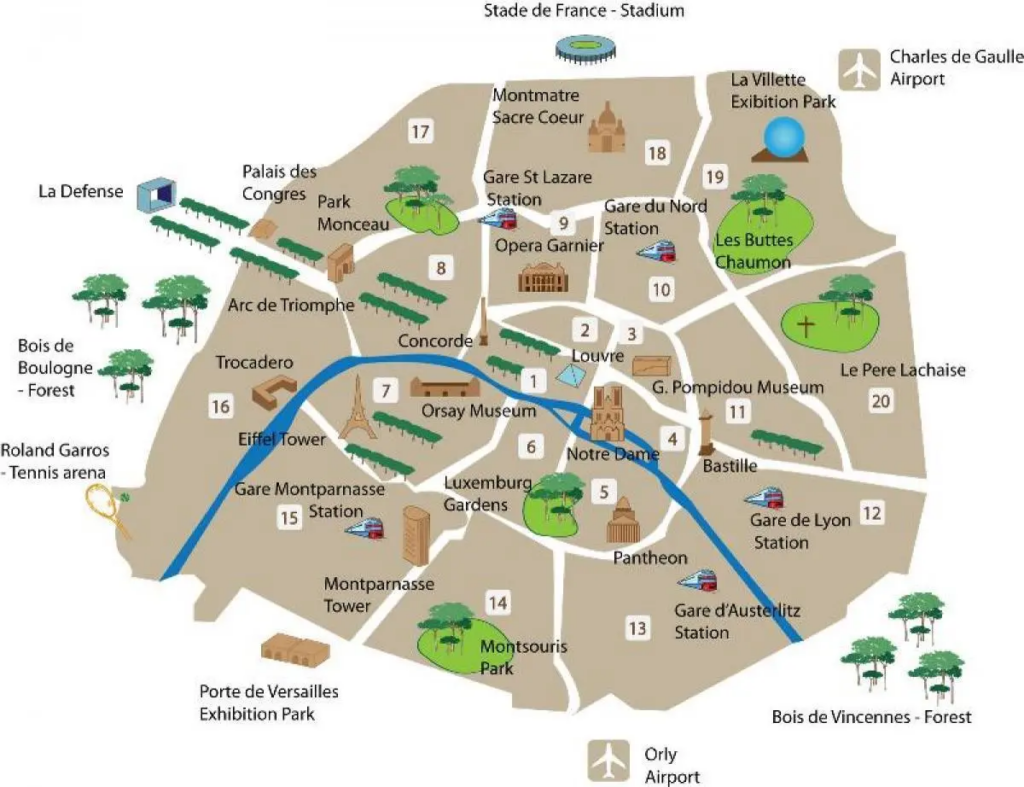Bonjour! Thomas Jefferson once said,”A walk about Paris will provide lessons in history, beauty, and in the point of life.” The Olympics will showcase French hospitality and culture to the world. Paris has hosted the Olympics twice before, once in 1900 and another time in 1924. After the 2024 season, Paris will be the second city after London to have hosted the games thrice. With less than 100 days to go for the Paris Olympics 2024, the preparations for the biggest event of the year are underway in full swing.
For people visiting France for the games, grasping local etiquette and culture of the historic city is the need of the hour. Let’s clear your doubts on Paris!

How do people in Paris greet each other?
The French greetings Bonjour (Good morning/afternoon) or Bonsoir (Good evening) are a common greeting before starting a conversation, much like Hello. In a formal setting, a firm handshake with direct eye contact is the standard greeting. However, in a more casual setting, French people often greet each other with “la bise” (cheek kisses). The number of kisses varies by region, typically ranging from one to four.
In France, people use titles (Monsieur, Madame, Mademoiselle) followed by the person’s surname to address people, unless the person requests the usage of their first name. “S’il vous plaît” (please) and “Merci” (thank you) are also important expressions in French culture.
Navigation: What is the significance of Paris’ arrondissements?
To travel in Paris, it is essential to understand the term “arrondissement”. Paris is divided into 20 administrative districts known as arrondissements. The arrondissements are arranged in a clockwise spiral starting from the city centre. The 1st arrondissement is located at the heart of Paris. Each arrondissement is identified by a number and has its own distinct atmosphere. While planning, locals may use this term to indicate the location of their destination in Paris.
For example, the 7th arrondissement is home to the Eiffel Tower while the iconic Notre-Dame Cathedral lies in the 4th arrondissement. Understanding the layout of arrondissements can help travellers navigate Paris more efficiently and appreciate the diverse neighbourhoods.

Culture: What defines French culture and lifestyle?
French culture is known for its rich history, art, food, and way of life. The country has been the global hub for artistic and literary expression for centuries. Paris is renowned for its art museums like the Louvre and Musée d’Orsay, to name the most popular ones. Home to fashion houses like Chanel, Dior, and Louis Vuitton, French fashion is all about elegance, sophistication, and effortless chic. French cuisine is also renowned across the world for its exquisite flavours and presentation. The meals are enjoyed leisurely, with good wine and lively conversation. The café culture is also integral to Parisian life, with sidewalk cafés full of people enjoying their snacks and coffees in peace.

Olympics: What cultural events accompany the Paris Olympics 2024?
Cultural events have accompanied the Olympic and Paralympic Games since 1948. The 2024 Paris Olympics will be no exception. Over the course of the games, hundreds of events open to all have been planned in France and its overseas territories. Ahead of the 2024 Paris Olympics, the Louvre Museum has announced a new exhibit focusing on the history of the Olympics titled “Olympism: Modern Invention, Ancient Legacy”. The exhibit will open on 24 April and will follow the founding of the games, and how the organisers sought to channel ancient Greece.
Understanding and respecting local etiquette, culture, and greetings is key to fostering positive interactions in any city, Paris is no exception. By embracing French customs and traditions, visitors can create meaningful connections and enjoy a memorable experience in this iconic city.
For information about travel protection, assistance, and insurance for you or your business, check out Sitata’s comprehensive plans. When you travel with Sitata, you travel worry-free.



